As I sit down to write about standing #WithRefugees my mind immediately goes back to a memory right after my son was born. I remember vividly sitting in my rocking chair, breastfeeding him while reading the news...
...🚨The headlines that summer were filled with the Syrian refugee crisis🚨,
and tears welled up in my eyes as I imagined the countless mothers who were fleeing home with their own babies, who might not live to raise their children, and the vast unnecessary suffering endured by innocent lives.
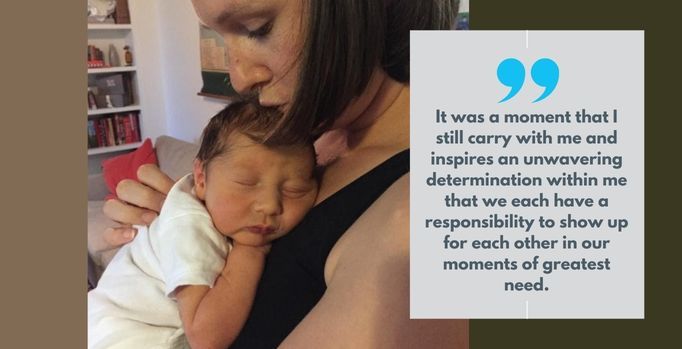
I carry this deep-rooted belief as I lead Watsi. In my role, I am driven to reach every individual with the healthcare they deserve, breaking down barriers and challenging the notion that one's place of birth should dictate their access to the care they need and full opportunities in life. The limitations imposed by the lack of access to basic medical care, particularly in low-income countries, are profoundly unjust.
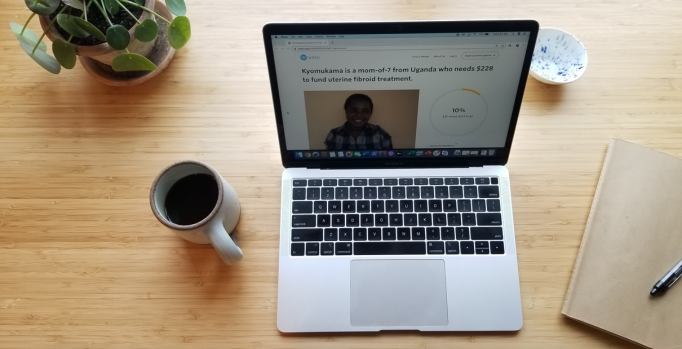
Thinking back, my journey toward advocating for global healthcare equity began even earlier. Early on in my career, I had the privilege of serving as a humanitarian worker with the United Nations 🇺🇳. In that role, I witnessed firsthand the lives displaced by disaster and crisis. I saw the resilience of refugees and the immense challenges they faced in accessing basic services, including healthcare. These experiences deeply impacted my own outlook and solidified my commitment to championing the rights of those forced far from their homes.
In a world where borders divide and conflicts force people to flee their homes, access to healthcare becomes an urgent concern. The statistics speak volumes 📊—108.4 million forcibly displaced people worldwide, equivalent to the 14th most populous country. More than 1 in every 74 people on Earth has been forced to flee. We must never forget that these numbers represent lives, dreams, and hopes, and it is our collective responsibility to ensure they receive the care they need. These are our fellow human beings, uprooted from their homes, seeking safety for their family, and a chance at a better life.
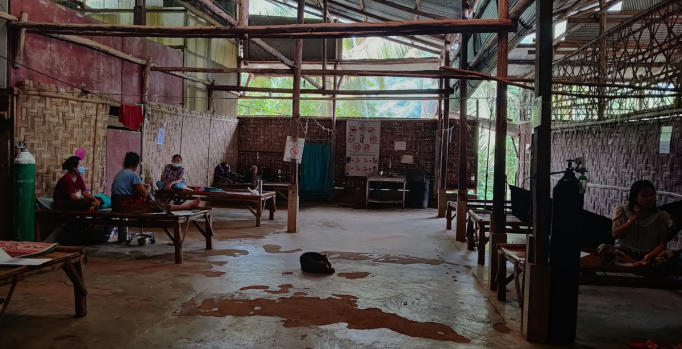
Today, as I share the journeys of refugees from the Watsi community and their incredible courage, I am reminded of the urgency 🆘 to provide them with access to critical healthcare that can save their lives and unlock so much for their future.
Let me introduce you to Gabriel, a 46-year-old refugee from South Sudan. Gabriel, along with his six children, sought refuge in the Kakuma refugee camp in Kenya, fleeing civil conflict in their home country. Gabriel suffered an accident that resulted in a broken arm. He underwent surgery in a local hospital but later developed complications, forcing him to seek follow-up treatment. Gabriel needed urgent surgery, without which, he risked further complications and potential amputation. Unfortunately, the cost of the procedure posed a significant challenge for Gabriel and his family, who lacked the funds and medical coverage. This is when we met Gabriel as our medical partner, African Mission Healthcare, worked to provide him with the treatment he desperately needed. Living as a refugee, he wasn't able to raise the whole amount required to pay for his surgery, however, with support from the kindest Watsi community, he finally went to the operation theatre. And after 9 days of admission to the hospital, he was on his way to healing.
I'd also like you to meet Grace - a bright and hardworking student in Kenya. Grace’s family came to Kenya as refugees from Rwanda to escape the 1994 genocide. Her parents started a small cereal shop after they settled and work hard to support their family. Grace had frequent ear infections that impacted her hearing, and this was affecting her studies and performance. Grace's final exams were approaching and she was afraid that she wouldn't be able to meet all the requirements, so she urgently needed hearing aids on both ears. With support from Watsi, Grace was able to get treatment and had the aids fitted so she could be ready for her exams. She was all smiles as she headed home!
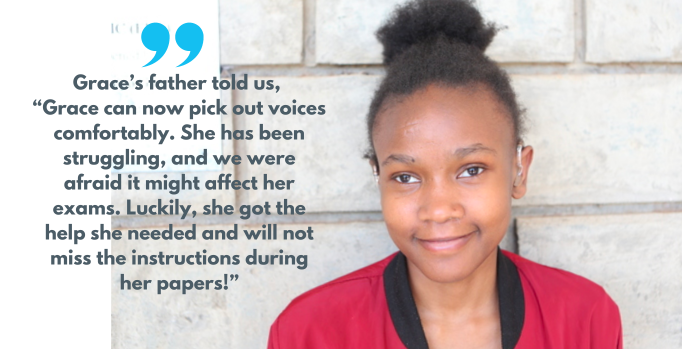
The stories of Gabriel and Grace serve as a stark reminder of the obstacles faced by refugees when it comes to accessing healthcare. It is a testament to the pressing need for organizations like Watsi and our medical partners to come together and provide medical care for the world's vulnerable, including those often left behind or forced far from their homes.
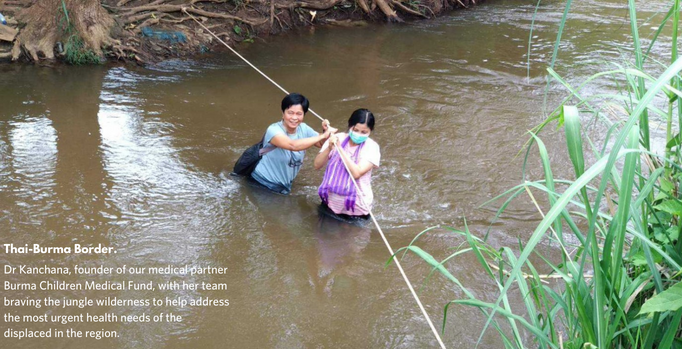
Our partnership with Burma Children Medical Fund (BCMF) exemplifies our commitment to standing #WithRefugees. Together, we strive to uplift and bring comfort, healing, and good health to refugees like Naw Say, who underwent a safe c-section delivery with our support.
Naw Say shared, “I love being a teacher even though I receive a very little stipend. If I have to pay for my operation cost, I will never make it and if there are no donors for me, I can’t imagine how my delivery would turn out. I am so happy to have a lovely baby and now she started to talk and make sounds. Thank you to everyone who helped me, even though I never get to meet you in person.”
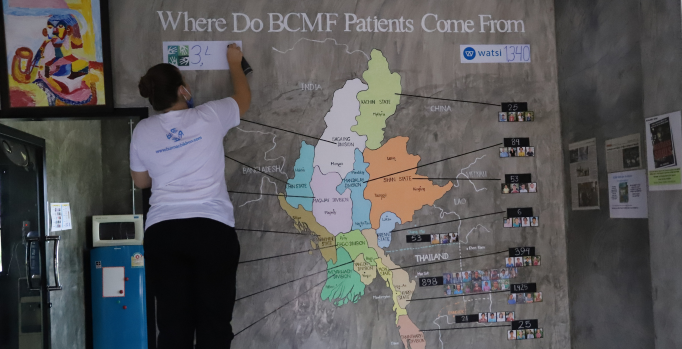
When it comes to healthcare, refugees face numerous challenges. Often the first evacuated from conflict zones are the ill and injured. The result is that the refugee population has a higher proportion of surgically disabled individuals, yet significantly lower chances of receiving the necessary referral or treatment. This surgical shortfall leads to unnecessary illness, disability, and most tragically premature death, exacerbating the suffering experienced by those already forced far from their homes.
As an advocate for change, I've witnessed firsthand the transformative power of surgical care. ⛑ A study conducted by Dr. Dan Poenaru and Victor K. Wu examined surgically correctable disabilities among children in one of the world's largest refugee camps called Dadaab in Kenya. Their findings revealed that surgical interventions often cost less in $/DALY (disability-adjusted life year) than other medical treatments pursued within healthcare systems. This discovery highlights both the feasibility and cost-effectiveness of surgery as an intervention in refugee camps.
We cannot turn a blind eye to the healthcare needs of refugees. It is essential for national healthcare systems and humanitarian organizations to include surgical care in their planning and programming. Without making these investments, more lives will be lost unnecessarily.
As I reflect 📝 on the immense strength and courage displayed by refugees, my conviction grows stronger. The path to better healthcare for all may be long, but together, we can overcome the challenges. Join me in breaking down barriers, ensuring that healthcare knows no borders. Together, we can forge a path toward a world where all people, regardless of their circumstances, have access to the care they need and deserve.
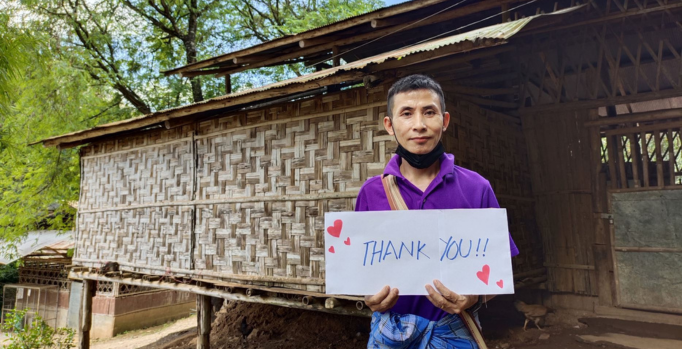
🙏 Come join me in our Universal Fund today supporting life-changing healthcare for those most in need around the world, all year long.🙏
Mackinnon Engen
Executive Director @Watsi